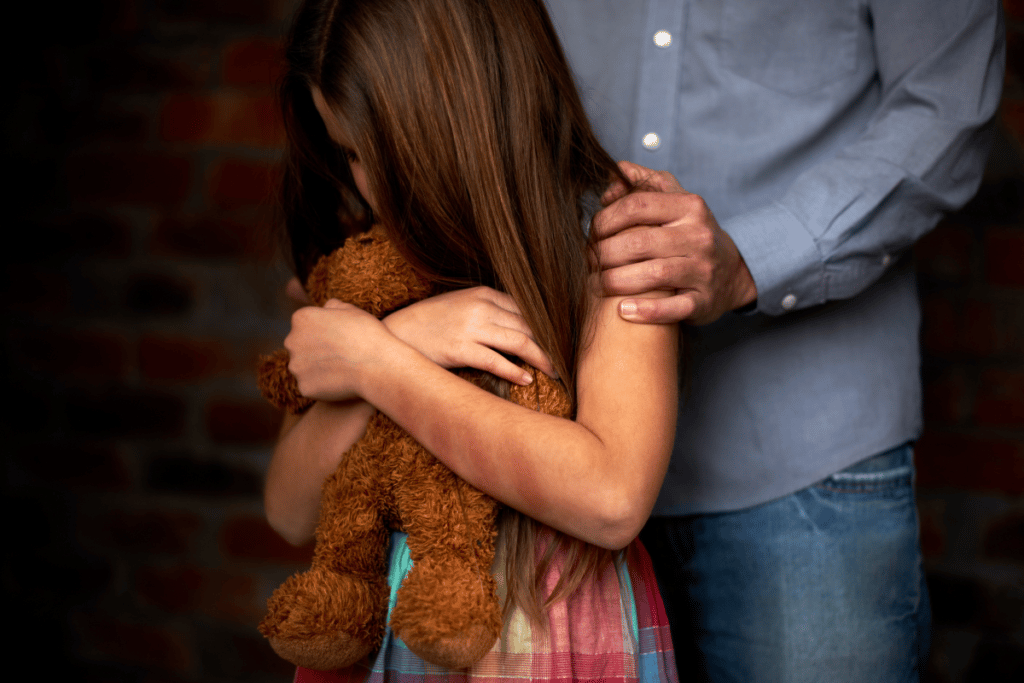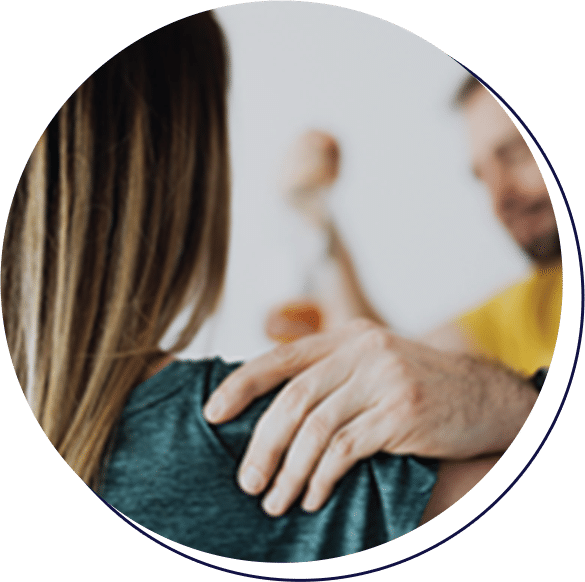Social Media and Sexual Abuse
Sexual abuse, a form of sexual violence, can impact a wide range of victims across all demographics. The effects of sexual abuse can last the victim’s lifetime and can also impact entire families and communities.
 Written and edited by our team of expert legal content writers and reviewed and approved by Attorney Matthew Bergman
Written and edited by our team of expert legal content writers and reviewed and approved by Attorney Matthew Bergman
- Content last updated on:
- October 2, 2025
Written and edited by our team of expert legal content writers and reviewed and approved by

- Content last updated on:
- October 2, 2025
It is a widespread misconception that sexual abuse can occur only in person. Sexual abuse can and does happen on social media and in other online forums. It is also common for perpetrators of sexual abuse to make initial contact with their victims online, and then progress to in-person abuse.
According to the Centers for Disease Control and Prevention, one in three females and one in nine males experience sexual abuse in their lifetimes. Many instances of sexual abuse occur against children and teens.
While movements such as the #MeToo social media phenomenon have shed light on the prevalence of sexual harassment, abuse and assault, many victims of sexual abuse still live with fear and shame.
However, there is hope for victims, and those who have suffered sexual abuse may receive justice, even years later.
A therapist specializing in treating victims of online sexual abuse may help them work through the emotional effects, health care providers can address physical symptoms, and a legal team with experience pursuing claims of sexual abuse will help deliver justice when the abuse has occurred on social media platforms.
What is sexual abuse?
According to the American Psychological Association, sexual abuse is defined as any type of sexual activity perpetrated against an individual without his or her consent. Sexual abuse can happen entirely online, with no in-person meeting.
Although some people use the terms sexual abuse and sexual assault interchangeably, sexual abuse is the most accurate term when referring to a child victim or another victim who cannot consent to sexual contact because of a power imbalance.
Sexual abuse online and on social media can take many forms, including:
- Sending sexually explicit material without consent or to a minor
- Being forced to watch the abuser masturbate
- Extorting sexually explicit images of the victim, sometimes referred to as “sextortion”
Online perpetrators of sexual abuse may lie about their identity, particularly their age, as part of their attempts to ensnare victims. They may frequent online venues where minors gather, or may interact with topics of interest to young people as part of their strategy.

Grooming and Sexual Abuse
Sexual abusers often use a process called grooming in which they pursue a relationship with their victims to gain trust, then progressively expose them to sexual matters and touching. Today, such grooming often begins online. Social media is an avenue for abusers to contact victims, particularly children, in ways that may progress to abuse.
According to the Danish National Centre for Social Research, online interactions are often where sexual abuse begins. Sixty percent of boys’ unwanted sexual experiences with an adult began on the internet, according to the Centre, and that figure was 77 percent for girls.
Secret-keeping is an essential part of victim-grooming. An abuser may share sexually explicit imagery with their victim via social media as a way of establishing a “secret,” and then use that as a basis for further interactions.
In online spaces, groomers may also use blackmail, threatening to expose a victim’s intimate details if they don’t comply with the perpetrator’s wishes. A groomer may also ply the victim with gifts or money and may threaten to cut off the gifts if the victim speaks out.
Abusers may also emotionally manipulate the victim, preying on their need for affection and affirmation and telling the victim that others would keep them from seeing each other or be jealous of the relationship. Victims are often vulnerable and may be afraid of losing the care of the abuser.
The ultimate goal of grooming is for the abuser to create a bond with the victim that will make the victim less likely to disclose the abuse and more willing to acquiesce to the abuser’s demands for sexual behavior.
It’s critical to note that victims of groomers are not able to give consent and are unwilling participants.
Psychological Effects of Sexual Abuse
Sexual abuse doesn’t just leave physical injuries. It can damage the victim emotionally and psychologically and can result in trauma that lasts for years or a lifetime.
Common psychological effects of sexual abuse include:
- Anxiety and depression
- Post-traumatic stress disorder (PTSD)
- Eating disorders
- Self-harm or mutilation
- Loneliness or difficulty forming close relationships
- Suicidal ideation, attempted suicide or suicide
Healing from sexual abuse typically requires intense professional help. Support from friends and family can help victims feel that they are not alone. Many victims also find that speaking out against their abusers and pursuing justice helps them heal.

Signs and Symptoms of Sexual Abuse
Older victims of sexual abuse may be just as reluctant as children to disclose what happened. Sexual abuse can occur any time a victim is manipulated or coerced into sexual contact.
Some common signs of sexual abuse include:
- Anxiety in specific situations that didn’t occur in the past
- Avoiding certain places or people, like a particular family member
- Persistent sadness, depression and lack of enjoyment in things that used to bring them happiness
- Low self-esteem
- Changes in appetite and rapidly gaining or losing weight
- Disturbed sleep, both insomnia and sleeping too long
- Sexually transmitted infections
Although older victims may be able to articulate their experiences, they may be afraid to because of the influence the abuser wields over them.
Younger children may not be able to disclose what happened to them and may not even be able to understand the extent of the abuse.
Some common signs of sexual abuse in young children include:
- Genital or anal injuries, including bruising or bleeding
- Inappropriate sexual knowledge or sexual acts towards other children
- Sexually transmitted infections
- Fear of removing clothing or bathing
- Developmental regression, such as thumb-sucking or bed-wetting
- New fear of being left alone or fear of going to bed
- Extreme agitation or aggressive outbursts
- Withdrawing from family or friends
Suspecting that their child has been sexually abused is painful for parents. If you do suspect that your child is being groomed or abused, it’s important to step in as soon as possible to protect your child and get the treatment and help he or she needs.
Treating and Healing from Sexual Abuse
Some survivors of sexual abuse may have lasting physical damage from the assault or assaults. Some childhood sexual abuse victims may have damage to their genitals and anus or may be unable to have children. Some may have other physical injuries, such as fractures or bruising.
It’s not unusual for child sexual abuse victims to regress developmentally or exhibit developmental delays. Sometimes occupational therapy may help those who regress.
Trauma-focused therapy can help many victims of sexual abuse. This may include:
- Prolonged exposure therapy
- Cognitive processing therapy
- Reprocessing therapy
It’s important to note that every victim is different and may respond differently to different forms of psychotherapy. Some people may respond better to alternate forms of treatment, such as art therapy, to help process what happened by expressing and working through their emotions nonverbally.
Working with your loved one or child to identify a therapist and best course of treatment can help the healing process. Some people may develop mental health concerns that require a specialist. For victims of sexual assault who are actively harming themselves, it’s critical to get the proper medical care, treatment intervention and support.
What resources for justice do sexual abuse victims have?
Parents of online child sexual abuse victims naturally feel the urge to punish perpetrators of sexual abuse. However, it’s important to note that many states have a statute of limitations on sexual abuse charges. Some states have passed laws that allow victims of priest sexual abuse to press charges even decades after the fact.
Large technology corporations often do far too little to prevent sexual abuse online. In some cases, abuse can be directly traced to failures by these corporations.
If you or a loved one has been the victim of sexual abuse online, an attorney can help you understand your options, which may include suing to hold social media and other tech companies accountable.
Get Help for Sexual Abuse or Sexual Assault
Helping victims overcome the harm caused by online sexual abuse begins with holding those responsible to account, as well as contacting a licensed therapist and law enforcement.
If you believe that you or a loved one has been a victim of sexual abuse because of social media, there is hope. Contact the Social Media Victims Law Center today for help.
Frequently Asked Questions
For individuals and children who have been
We only handle cases on a contingent fee basis. This means that we are paid a portion of any recovery obtained in the case and you do not owe us any attorneys’ fees if the lawsuit does not result in a recovery.
Every case is unique. Our attorneys will work with your family to evaluate your potential case and help you evaluate whether filing a lawsuit or other legal proceeding is in your family’s best interest. Generally speaking, the types of cases we handle involve serious mental health effects, including attempted or completed suicide, eating disorders, inpatient mental health treatment, or sexual trafficking/exploitation that was caused by or contributed to through addictive or problematic social media use by teens and young adults.
We are a law firm based near Seattle, WA comprised of lawyers who have spent their entire careers representing victims who have been harmed by dangerous products. We are also parents. Shocked and troubled by the recent revelations about the harm caused to teens and young adults by social media platforms, which powerful technology companies have designed to be highly addictive, Social Media Victims Law Center was launched specifically to help families and children who have suffered serious mental harm or exploitation through social media use to obtain justice.
Contact Us Today
Related Pages
Client Testimonials
Explore Popular Topics

Addiction

Suicide

Eating Disorders

Anxiety

Bullying

Sexual Abuse

Body Image

